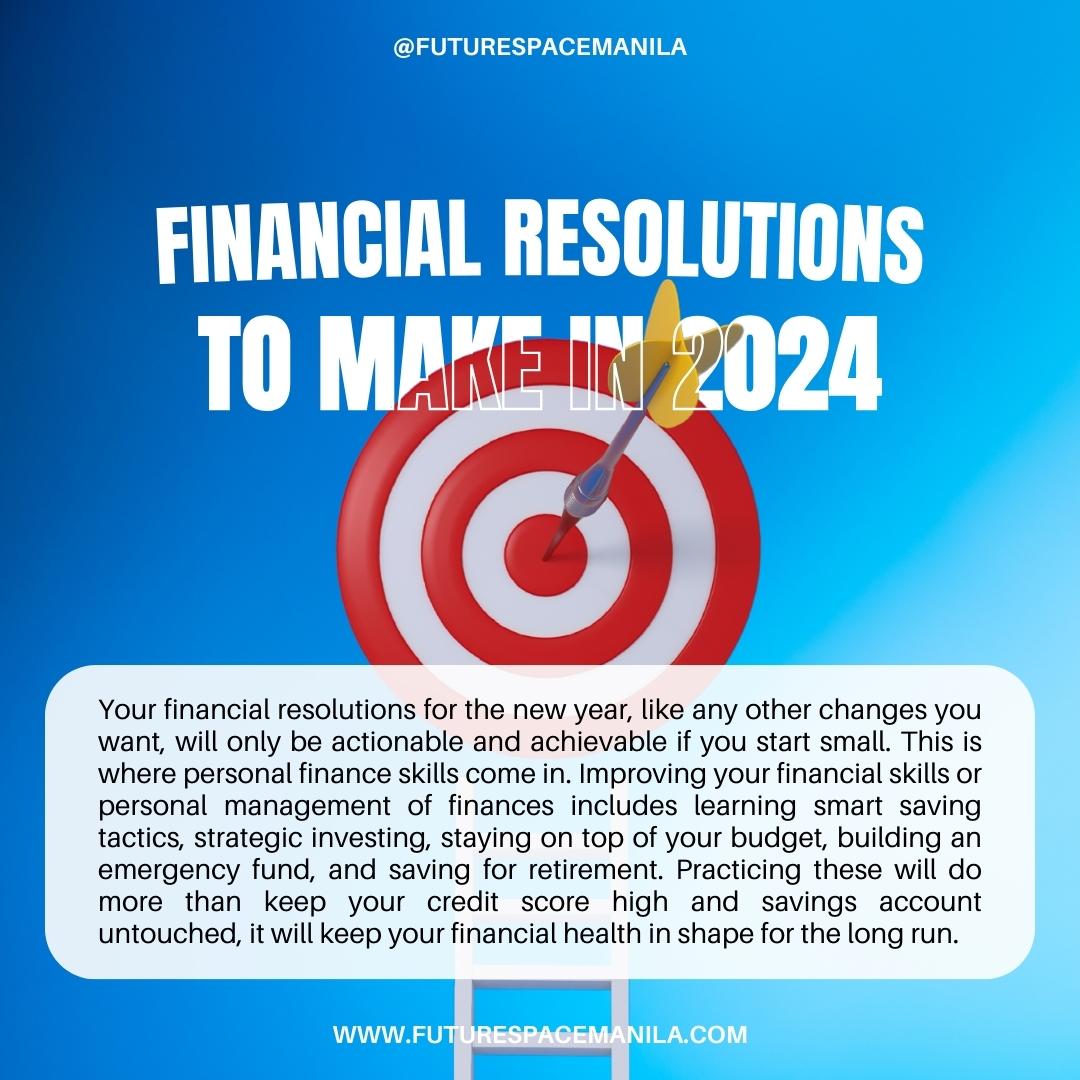|
Having a 9 AM to 5 PM job is not the only means to earn money and pay your monthly dues. In fact, there are plenty of ways to make money on the side given today's multi-hyphenate generation. From vlogging to selling online goods, one can easily find ways to generate passive income in the Philippines. Before getting into different passive income sources, let's deep dive into what passive income is and why people get into it.
What is Passive Income? An alternative means to generate income, a passive income stream is money earned or maintained with minimal effort. The common misconception is that to earn passive income is to make money fast without work. General Types of Passive IncomePassive income streams can be obtained through investments, which are savings allocated in either business capital or an investment vehicle like stocks. Becoming a shareholder of a company through stocks is a good way to profit especially if your investment pick performs well. Rental income is also a source of passive income when you invest in real estate. When deciding to lease a property, it's important to identify metrics like your estimated ROI, cost of maintaining the property, and other risks of owning a rental property. Online side hustles are among the ways to earn passive income with everyone basically hyperconnected via the Internet. Content creation, online teaching jobs, or setting up an online store or online business are among the ways to earn income on the side. While this requires work, one still gets to enjoy the luxury of having a flexible schedule on their hands. Advantages of Making Passive Income Having an additional source of income is a great way to earn or build your savings. Having an alternative for your active income is an efficient use of your time and energy to achieve financial independence. Passive income is a great way to fund your contingency in the event of unexpected financial interruptions. More importantly, having multiple alternative income streams encourages one to diversify portfolios. A diversified portfolio is a great way to decrease risk of investment since you always have fall back when one of your investments fail. Best Passive Income Ideas in the Philippines 1. Online Content Creation In today's hyperconnected world, everyone has something to say and everyone has an audience. If you have an intense passion or hobby to share with the world, it's high time to create content about it through blogging or vlogging and earn income without feeling like it's work. Creating an online journal or website with captivating images and videos is a good way to connect with like-minded people or audience. As soon as you build a substantial online following, sponsors or advertisers will be drawn to your online content to advertise. Blogs and vlogs can generate too through sponsored content. The key is to build authentic, quality content that an audience will find relatable and useful in daily life. 2. Teach Online Be part of the good force of the Internet by offering your reliable expertise to the world. These days, people opt for online courses because it's a convenient way to get educated without depleting too much time, money, and physical energy that commuting entails. Educators have the luxury of creating and sharing an online course and selling and distributing them through sites like Coursera, SkillShare, and Udemy. Online educators also include language experts, tutors, and even certified life coaches or nutritionists who have the luxury of earning a steady stream of passive income outside their clinics and physical classrooms. 3. Affiliate Marketing Did you know that you can earn a commission by promoting products and services on your website or blog? Affiliate marketing is good way to earn extra bucks minus laborious work. All you have to do is set up your site, join an affiliate program, and recommend products and services through your affiliate link. Driving traffic to your site generates income with minimal amount of energy. 4. Dropshipping Start earning passive income through dropshipping, a type of business that entails selling products without any physical inventory. Upon receiving an order from a customer, you contact the supplier and they ship the products directly to the customer. It's a low maintenance type of income generating business in the Philippines with little upfront investment as well. While this proves to be a convenient way to earn passive income today, it also has its flaws. The margins are slim, and you’ll need to work hard to find good suppliers and promote your store. 5. Leasing out a real estate investment property Turn your real estate property investment, whether a condominium or house and lot, into a money-making opportunity. Investing in a property also appreciates over time especially in prime locations where office workers and business executives, even expats who want to live in the Philippines, can seek short and long-term residencies. In 2023, revenge travelers soared and Airbnb rentals are once again sought after by tourists who wish to be nearer the local scene. Listing your property on Airbnb can also be a good way to make passive income via renting out your property. 6. Making financial investments A popular financial investment is buying stocks or shares of a company to become a shareholder. When your investment pick performs well and grows over time, you enjoy profit from your investment. Other financial investments that generate possible passive income are mutual funds, bonds, and peer lending. These require minimal follow-up work since they accrue interest. The main appeal of making financial investments is they tend to have a higher chance of earning through higher interests versus putting your money in savings account. The goal of creating passive income streams is to build your savings whether for retirement or contingency in the hopes of becoming financially secure. Of course without carefully studying or researching your chosen type of passive income, things can easily go south. Know the pros and cons of each business idea and make sure it's the passive investment that you're going to be willing to work hard and commit to.
0 Comments
With 2024 just around the corner, you're probably starting to think, like others, how you can better the person you were in 2023. Losing weight and getting into shape aside, assessing how far or near you are to achieving your financial goals should be a priority when you draft your resolutions for 2024.
Your financial resolutions for the new year, like any other changes you want, will only be actionable and achievable if you start small. This is where personal finance skills come in. Improving your financial skills or personal management of finances includes learning smart saving tactics, strategic investing, staying on top of your budget, building an emergency fund, and saving for retirement. Practicing these will do more than keep your credit score high and savings account untouched, it will keep your financial health in shape for the long run. Below are useful tips to set yourself up for financial success in 2024: 1. Build and increase your savings. Whether you're on your way to building your individual retirement funds or your contingency funds, applying smart saving tactics is key. Keep in mind that the goal is to have financial reserves so you won't have to worry about sudden life events that will interrupt your monthly expenses. This seemingly simple practice will give you peace of mind knowing you're financially secure whatever happens. In planning on increasing your savings, don't be afraid to start small. You can opt to save 10% or 20% of your income monthly or choose an account that will achieve substantial growth like a high-yield savings account. 2. Cut down on expenses via budgeting. Your 10 financial resolutions won't be effective without the power of disciplined spending and no other than budgeting helps you cut back on unnecessary spending. Having a budget will help you make a fully informed spending choice relative to your take-home pay. In fact, a budget helps you stay on track of your finances and stick to your goals better. 3. Settle your credit card debt. One of the best financial decisions to help you achieve your New Year's financial resolutions is paying off any remaining credit card balance. By now you should know that credit debt can be expensive to carry month to month because interest rates on credit cards tend to be higher than interest rates on other types of debt. So before you start building a retirement account or rainy-day funds, make sure you're not incurring more debt by putting off paying your credit card. 4. Improve your credit score standing. If you're aiming to get a home loan or any loan to invest in a business, having an excellent credit score will do you wonders. Having a good credit standing helps you get better interest rates on credit cards and mortgage loans. Building this requires paying on time and not neglecting your balances. If you're planning to pay down debt, it would be good to get a side hustle or reassess your monthly budget and see what you can give up to settle any balances. Avoid having multiple credit cards and make sure to keep credit open once you're debt free. 5. Start an investment. The objective is to earn money passively. This means putting your savings where it can grow and compound over time. Explore how you can invest in stocks as a beginner or reassess your savings if you're ready to invest in a property that you can rent out. Make your money work for you. 6. Acquire an insurance policy. Apart from setting up an emergency fund, invest in an insurance policy that will cover your expenses for sudden hospitalizations, illnesses, or cases of theft. These life events are out of your hands and it's best to prepare for these to make you financially flexible. Insurance ensures security for you, your family and your assets. 7. Spend intentionally. To help you achieve financial success in 2024, make sure to spend on things that are important to you and your future. This doesn't mean depriving yourself of the things that make you happy or bring you peace of mind. Go ahead and cross out a travel destination off your bucket list if it means fulfillment. Say yes to a gadget purchase that you've worked hard for. Spending intentionally means having a full understanding of where your money goes and how it helps you achieve things that matter in your life. The key here is getting more organized and having a mindful way of what you're earning and what you're spending. This greatly helps in assessing your financial health by the end of the year. Ultimately, your financial New Year's resolutions should be about building good financial habits that will help you bring closer toward your goals. Long-term financial success is unattainable without short-term personal finance practices that you can commit to. Nothing puts people in a Yuletide mode more than decorating their homes with shiny stars and ornaments and putting up the Christmas tree. It's technically an annual chore, involving dusting off old items like advent calendars and garlands, but that doesn't feel like a chore. Christmas decoration is that fun part of the holiday that kicks off everyone's festive spirit.
However, a fair warning to holiday decor enthusiasts: it's easy to get carried away by the Christmas vibe and unnecessarily spend on a new centerpiece or a dozen faux candy canes and glittery pinecones. Don't stretch your annual bonus just yet on those fresh decorating ideas. Making your creative Christmas decor ideas happen should not cost a fortune. Read on below for modern and cool ways to decorate your home for Christmas when you're observing a budget. 1. Create DIY Christmas ornaments To cut back on your budget for holiday decorations, you can already use ornaments you have on hand or buy secondhand from online thrift stores. Get into your creative zone and recreate the ornaments with DIY crafts materials like sequins, glitter pens, or Christmas fabrics. Fill bowls with ornaments for an easy Christmas centerpiece, or place them in old wooden crates for a rustic mantel look. DIY Christmas crafts are a great way to go eco-friendly when you use old Christmas cards and cut them up for extra sparkle to your ornaments. You can even hang them up your Christmas tree or make a collage. 2. Go for budget-friendly Christmas candles Candles add warmth and sophistication to your festive home decor. It's a great addition to your budget Christmas decorating ideas as they are inexpensive and come in various colors and sizes. You may attach fresh greenery with them or put them in mason jars and freely decorate them with faux cranberries. Pro tip: if you decide to add candles, go for ones with scent, preferably cinnamon, pine, or peppermint to level up your Christmas decoration ideas. 3. Make your own Christmas wreaths Decorating for Christmas wouldn't be complete without a wreath which can come cheap and easy. A homemade Christmas wreath is doable if you upcycle an old garland from your previous DIY Christmas decorations. Make a round frame out of an iron wire and wrap the garland around it to form a wreath. Add holiday decor like pines, shiny paper decorations, or even string lights. 4. Embellish your Christmas tree with DIY decor Decorating for Christmas on a budget doesn't mean you have to forego the popular Christmas tree. Take inspiration from old magazines, social media, and trees on display. Buy a secondhand one or better yet, watch for sales during off season. Decorate your tree with stockings or easy Christmas crafts like DIY ornaments and candy canes. 5. Go for nostalgia To make Christmas special, decorate with old items that bring family memories alive. Make use of old stuffed animals and put on Santa hats on them. You can dig in your files for old family photos from previous holidays or trips you've made over the years, print them out, and use Christmas crafts to make photo frames for each. Nostalgia just might make your 2023 your best batch of Christmas decor. 6. Holiday bedsheets and pillows One fitting Christmas decoration idea for every home are holiday-themed bedsheets and throw pillows. Pro-tip: shop online during the off-season or catch clearance sales as soon as the holidays are over. It's a great investment that will make a big impact on your annual holiday decorating activity. 7. Style up your Christmas table When decorating on a budget, there's so much you can do to your Christmas table even when you're going DIY holiday! Your dining table decorations can be made out of recycled materials like old candle jars decorated with fairy lights and pine cones. You can also fill up the old jars with Christmas trinkets! 8. Be original with your gift-wrapping ideasWho says you have to queue up that line for the cashier to buy this year's gift wrappers? When you have a tight budget for the holidays, go eco-friendly! Use recycled brown paper bags and create gift wrappers out of old newspapers and magazines. You can attach an old Christmas sprig or holly to gifts for a Classic Christmas touch. The secret to decorating your home on a budget is going back to the basics. You won't sacrifice the beauty of your home when you get creative and go for DIY Christmas decor. Upcycled and simple homemade decorations add a certain elegance and uniqueness that you can't find in mass-produced, store-bought items. You can't also deny that doing Christmas crafts with loved ones and friends is a great way to bond during the Yuletide season! Pet owners can attest to the emotional support a furry friend, whether a dog or cat, can bring in your life. But pet ownership is a real financial commitment that needs to be considered in your monthly budget. From getting pet insurance to scheduling monthly grooming, the cost of owning a pet can take a toll on your finances without careful planning.
Here are tips to put your pet expenses at a minimum without missing out on the joys of being a pet parent. 1. Research and learn about the new pet you want to own. To avoid being overwhelmed by the cost of owning a dog or any pet, take time to do your research about the type of pet you want to own. Consider the size. Will a small, medium, or large pet fit in your home? Learn how to take care of them: what kind of food do they eat? Are they low or high-maintenance? Most importantly, find out the ongoing cost of the specific pet you have in mind. Many pet owners will have plenty of tips to share as well so it is advisable to consult family or friends who are already pet- or dog owners. 2. List down the list of pet expenses your chosen pet requires. After familiarizing yourself with the type of pet you want to own, you'll now have an idea about their pet care requirements. It's time to list down the full extent of what you will be financially covering. Pet costs are likely to include:
Naturally, these pet costs will also depend on the type of pet you get. Note that their needs (especially for medical expenses) will depend on their age and their health. 3. Establish a pet budget. When you become a pet owner, expenses may pile up. The only way to handle ongoing costs would be to create a budget. Of course, you need to consider the monthly cost of your current lifestyle, too. How will pet ownership affect or support your financial goals? 4. Cut your pet budget some slack by reducing initial expenses. The cost to own a dog or puppy or any chosen pet can be overwhelming, especially for new pet owners. A trip to a pet store can easily excite you to buy dog food or treats, and without being mindful of the true costs, you might need to pay more than your monthly budget. To help you save money and wisely budget for your pet, try these smart money moves:
5. Consider getting a pet insurance or wellness plan. Even though you've already set a budget for your pet's monthly costs, unexpected and expensive medical costs can come your way. Pet insurance policies make sure that your expenses will be covered. You will typically submit a covered claim, but upon approval, you're assured of a reimbursement. Wellness plans may also help you cover regular check-ups, teeth cleaning, earthworm treatments, and annual exams, while pet insurance can come in handy when accidents or emergencies occur. Financial preparedness for owning a pet entails thorough consideration of your financial standing. There is no exact way to budget since this will depend on the type of pet that you choose and their age, health, and size. Investing in stocks feels like a serious and daunting task especially when you're just a beginner who wants to get started. If you're determined to make your savings grow in the hopes of financial independence, well you're on the right track! Learning to start investing in stocks takes courage and plenty of patience to familiarize yourself with terms like "mutual funds," "individual stock," or "share of stock." But raising your financial literacy is an excellent place to kickstart your stock investing journey.
Below is a guide for beginners on stock market investing. Let's start with the basics. What are stocks? Stocks represent a measure of ownership in a company. When you buy stocks or buy shares of a company or corporation, you become part of its stockholders or shareholders. When the company performs well and grows, over time, you enjoy returns on your investment. Of course, if the company suffers a loss, you also lose your investment. What is the stock market? When after thorough research you decide to get shares of stock from XX company, where would you go to invest your money? The stock market is where stocks are bought and sold to investors. In the Philippines, we have the Philippine Stock Exchange, or PSE, which is one of the oldest stock exchanges in Asia. When companies want to expand and need funding, they sell a part of their ownership to the public via the stock market. How do you earn money when you invest in the stock market? 1. Capital Gains When the company that you invested in grows, more investors would want to buy stocks or shares from it. This demand would raise the stock price. This puts you at an advantage as an early investor because other investors would want to invest and be eager to pay you a much higher price for your shares. The money you earn when you sell stocks is called capital gains. 2. Dividends Profitable companies who rake in profit share a portion of their earnings to their stockholders by paying dividends in the form of cash or free additional shares. Did you know that in the Philippines, PSE investors generally receive dividends once or up to four times a year? While everyone's investing goals is to earn profit and grow wealth, all investments, including stock investments, are still subject to how strong or weak the economy present economy is. This is why holding multiple stocks or diversifying your stock portfolio helps reduce the risks of a volatile economy. Best Ways for Beginners to Start Investing in Stocks A good starting point for rookies is to put money in an online investment account which can be used to buy shares or stock mutual funds. You can also start investing for the price of a single stock share when you open a brokerage account. A brokerage account allows you to buy and sell a variety of investments from mutual funds to stocks. This is an excellent way to invest money if you're saving up for the future or a big purchase. When investing in individual stocks feels to advanced for you, you can considering investing in mutual funds or unit investment trust funds. Not sure where to start? Seeking the expertise of a financial advisor is also an option if you want someone to align your investment goals and manage your portfolio. Below are more useful tips to consider before you begin investing. 1. Increase your financial literacy. In short, deep dive into the world of finance and learn about the ins and outs of the stock market. Researching the strong companies and best stocks to buy, studying financial statements, disclosures, and strategies, knowing the best time to buy and sell, and learning how to diversify your portfolio, are all ways to get educated about stock investment. 2. Create your own investing strategy. You cannot reach your investing goals without a solid plan. Do you seek to earn from stock price appreciation or dividends? Do you see yourself trading stocks long-term or short-term? Some investors are proactive traders who can buy and sell stocks within a day, week or month. Others are long-term investors who purchase stocks and hold on to them over a long period before selling once they reach their target. A recommended strategy for beginners who choose to invest in stocks is the Peso Cost Averaging, wherein you invest a fixed amount on profitable companies at regular intervals (monthly, quarterly, semi-annually, or annually) for a long period of time (usually between 5 to 10 years). This is a good strategy for those new to stock market basics and looking to minimize risks by purchasing shares at different prices. It also helps build the habit of investing by adding or investing money at regular intervals. If you're looking to invest long-term, buying blue-chip stocks is also a good option since they are from topnotch companies in the Philippines. Strong players to invest in the Philippine Stock Exchange are Ayala, Aboitiz, BDO, BPI, DMCI, Megaworld, Robinsons, etc. 3. Open a brokerage account and begin investing. Once you've done your research, you need a stock broker to assist you in buying and selling shares or stocks. Stock brokers are those who participate in trading and can be an individual or a company accredited by the PSE and Securities Exchange Commission to purchase and sell shares on behalf of investors. As mentioned before, beginners who what to venture into the stock index for the first time are recommended to invest through online stock brokers. Online trading platforms offer real-time stock market information, stock research reports, and easy portfolio management. Once you've set up your brokerage account, you can now start trading stocks through it. Remember to add money or invest an amount that you would be willing to risk. Be mindful that the stock market does not guarantee fast and equal returns. Compared to before, beginners in stock investing have plenty of access to information. You just have to be patient in immersing yourself in finance and make sure to strategize well. It's never too late or too early to start investing in order to maximize your gains from the stock market. |
Categories
All
Archives
January 2024
|






 RSS Feed
RSS Feed